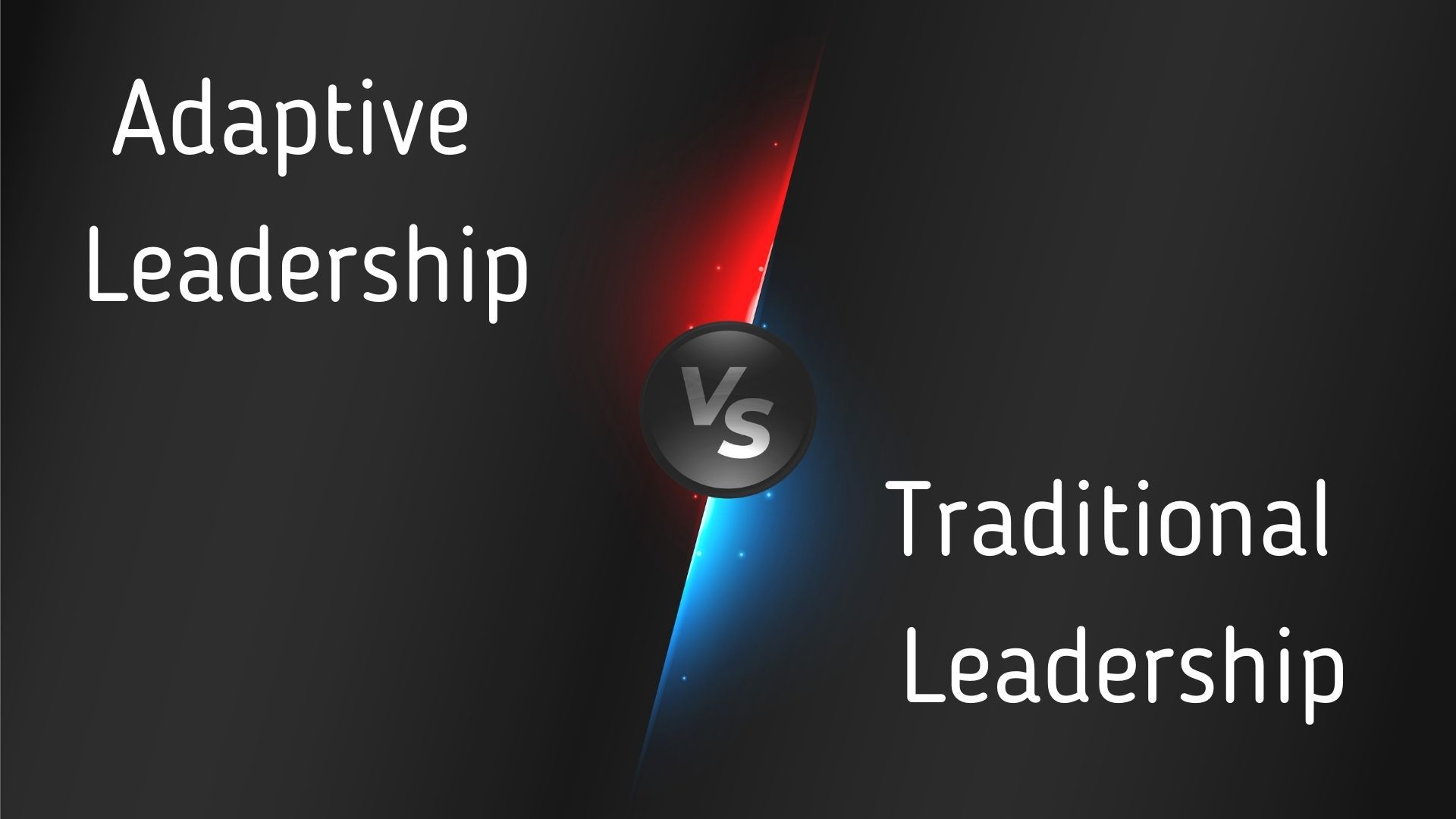
What is Adaptive Leadership and How Does it Work?

Adaptive leadership is a practical model that solves business problems by adapting to changing environments It involves emotional intelligence, organizational justice, development, and character Adaptive leaders embrace change, promote inclusivity in decision-making, and effectively utilize people's strengths However, hasty decision-making and limited honesty can be disadvantages Adaptive leadership involves navigating the business environment, leading with empathy, learning through self-correction and reflection, and creating win-win solutions Examples of adaptive leaders include Abraham Lincoln and General George Patton
Adaptive leadership is a highly effective model that emphasizes flexibility in problem-solving and the ability to adapt to changing environments. It involves responding to recurring problems and anticipating challenges by identifying their root causes. Successful adaptive leaders are skilled at influencing groups of people to overcome challenges and emerge as victorious. They also possess the ability to discern which challenges are worth addressing and which ones can be avoided to conserve time and resources.
What is Adaptive leadership?
Adaptive leadership is a pragmatic approach that emphasizes the need for leaders to be flexible and responsive to the constantly evolving circumstances around them. It involves honing the ability to identify the critical components of a problem, focusing on them, and then adapting one's strategies to effectively address them. This approach also requires leaders to be willing to discard or avoid nonessential elements that may hinder progress.
The concept of adaptive leadership skills was developed by Ronald Heifetz and Marty Linsky. Business professor Leon C. Megginson emphasizes the significance of these skills by referencing Darwin's theory that the survival of a species depends not on intellect or strength, but on its ability to adapt to its changing environment.
The adaptive leadership style is highly effective in addressing complex adaptive problems that do not have clear-cut solutions. These types of issues may have a multitude of potential solutions, but it can be difficult to determine which one is the most appropriate.
Through adaptive leadership, individuals can be motivated to take a proactive approach to solving these types of challenges. This leadership style has gained popularity, particularly during the pandemic, as unforeseen situations have created a continuous stream of adaptive problems that require innovative solutions.
This form of leadership sets itself apart from conventional leadership as adaptive challenges are not the same as technical or traditional issues. To fully recognize the contrast between the two, let's take a closer look at their dissimilarities.
Technical and Adaptive Problems
Adaptive challenges pose a unique set of difficulties as there are no established solutions or experts to address them. Unlike technical problems, which can be resolved by professionals, adaptive problems require innovative and creative approaches to find effective solutions.
4 A’s of adaptive leadership becomes useful in handling such problems-
4 A’s of Adaptive Leadership
Adaptive leadership involves the use of the 4 A's to address unique adaptive challenges. One of these A's is anticipation, which refers to the ability of leaders to anticipate future trends, needs, and options.
Leaders must effectively articulate the needs of their team in order to build a collective understanding and support for action. It is also important for leaders to be adaptable, continuously learning and adjusting their responses as necessary to ensure success.
Accountability- Adaptive leaders are accountable for ensuring maximum transparency in decision making processes and openness to challenges and feedback.
Four Principles of Adaptive Leadership
The adaptive leadership philosophy is deeply rooted in the following four foundational principles.
1. Emotional Intelligence
Leaders who possess emotional intelligence have the ability to comprehend and acknowledge the emotions and feelings of others. These adaptive leaders prioritize empathy and strive to build strong relationships based on trust. This approach creates an inclusive environment where everyone feels heard and supported, resulting in boosted morale throughout the organization.
2. Organizational Justice
An effective leader who adapts to change values honesty and transparent communication with their employees. They also prioritize their employees' concerns and questions by addressing them earnestly. This fosters a culture of equal treatment and fairness, which is crucial for implementing adaptive changes. When decisions are made in a transparent and honest manner, employees perceive them as fair, making it easier to implement changes.
3. Development
Effective leadership involves adaptive problem-solving and a willingness to experiment with new strategies and processes. Adaptive leaders understand that failure is a natural part of the learning process and use it as an opportunity to grow and refine their approach. By fostering a culture of creativity and determination, these leaders empower their employees to reach their full potential.
4. Character
A competent leader holds themselves to the same high standards as their team members. They exhibit a clear sense of ethical obligation, responsibility, and moral principles. The atmosphere is one of mutual respect, where constructive criticism is encouraged. Such leaders have a strict code of ethics and guiding principles that they adhere to.
The Practice of Adaptive Leadership in an Organization
Adaptive leadership is quite crucial for an organizational setup as it influences the ways teams overcome challenges and accomplish their goals. success.
Effective leaders are driven by adaptive challenges and strive to cultivate an adaptive culture within their organization. Harvard Business Review Press has released the book "Practice of Adaptive Leadership: Tools and Tactics for Changing Your Organization and the World," authored by Ronald A. Heifetz, Alexander Grashow, and Marty Linsky. It offers a wealth of resources, including stories, diagrams, tools, cases, and worksheets, to assist leaders and managers in honing their adaptive skills, pushing individuals beyond their comfort zones, and overcoming the most daunting obstacles in our ever-evolving world.
The book also suggests the key traits of adaptive leaders, so let us have a look at that as well
Traits of Adaptive Leaders
Some of the key traits of leaders and managers with adaptive leadership skills are-
Skills to link organizational change to the primary values, dreams, and abilities of the involved stakeholders
Creating a welcoming environment that embraces diverse viewpoints and leverages collective knowledge for the benefit of the organization is a crucial skill. Effective leaders also recognize that change can be a difficult and uncomfortable process, and are able to anticipate and address any resistance or reluctance from their team members.
Understanding the importance of acceptance and persistence in achieving large-scale change is crucial. It requires the willingness to endure the challenges that arise during the process and a commitment to seeing it through. Additionally, being proactive and actively seeking out opportunities while investing the necessary resources to pursue them is essential for success.
Ability to accept when they make mistakes and change or abandon non-productive strategies
Being open to experimentation and risk-taking
Leadership skills to like and encourage innovation among team members or employees
Advantages of Adaptive leadership
The following are the pros of adaptive leadership:
1. Embraces Change
Adaptive leadership is essential for organizations to thrive in today's constantly evolving landscape. Being flexible and open to change is crucial for success, as no organization can avoid or be immune to the shifts happening around them. Embracing adaptive leadership means acknowledging that the environment is dynamic and unpredictable, and being prepared to face anything that comes your way.
2. Higher Inclusivity in the decision-making process
An effective leader understands the value of listening to diverse perspectives and ideas from their team members before making any decisions. They recognize that unconventional solutions may be necessary for problem-solving and are willing to draw upon the strengths of their employees to find the best solution. By fostering a culture of creativity and open communication, adaptive leaders encourage their team to share their perspectives and ideas.
3. Rules are meant to be broken
An adaptive leader understands that change is constant and therefore does not place too much emphasis on following rules. They recognize the possibility that rules may need to be revised in order to adapt to changing circumstances. During times of change, an adaptive leader avoids clinging to established policies and procedures, as this goes against their flexible and adaptable nature.
4. Effectively use the strengths of people
Disadvantages of Adaptive Leadership?
Effective leaders are skilled at leveraging the unique talents and strengths of each team member. They strategically assign roles and responsibilities that align with individual strengths, leading to a more productive and collaborative team dynamic.
The following are the cons of adaptive leadership
1. Hasty decision-making is possible
Making a decision quickly can be challenging, as there is a fine line between being prompt and being hasty. It's crucial to avoid labeling innovative approaches as failures too soon, as they may just need more time to prove their effectiveness. Leaders must be mindful and timely in their decision-making process to avoid making the wrong choices or disadvantageous decisions.
2. Limited Honesty
Organizational justice is a fundamental principle in adaptive leadership. However, there may be situations where leaders are required to withhold certain information from their employees. It is crucial for leaders to strike a balance between sharing appropriate information and withholding information based on the context. Failure to do so can result in more serious issues down the line.
Four Dimensions of Adaptive Leadership
Leaders adaptive focus on the following four dimensions to better prepare for unforeseen business environments.
1. Navigating Business Environment:
An agile leader thrives in uncertain situations by constantly seeking opportunities for improvement and actively solving problems. They prioritize learning from their mistakes and adapting to change in order to find the most effective solutions to their individual challenges. This approach enables them to successfully navigate the ever-evolving business landscape.
2. Leading with Empathy:
Such leaders have a high EQ and foster strong bonds with their employees. They respond and lead with empathy and can effectively recognize the emotions of others.
3. Learning via self-correction and reflection:
An effective leader is one who embraces experimentation and learns from both successes and failures. When faced with a setback, an adaptive leader engages in self-correction and reflection, using the experience as an opportunity to grow and improve.
4. Creating win-win solutions:
An effective leader who adapts to their environment understands the importance of cooperation and actively involves others in the day-to-day operations of the business. They recognize that success is not solely measured by revenue, profits, and margins, but also by the well-being and satisfaction of all parties involved. As such, they strive to find mutually beneficial solutions for everyone involved.
Adaptive Challenges during Adaptive Leadership
.
This resistance can stem from a variety of reasons, such as fear of change, concern about losing control, or simply a lack of understanding about the benefits of adaptive leadership. Overcoming these challenges requires effective communication, education, and collaboration between adaptive leaders and senior executives. It also requires a willingness to listen to each other's perspectives and ideas, and a commitment to continuously learning and improving. Ultimately, the success of adaptive leadership depends on the ability to navigate these challenges and create a culture of openness, innovation, and growth within organizations.
In the context of adaptive leadership, resistance can manifest in various forms such as diversion, marginalization, and even direct attacks from employees, clients, or stakeholders. Additionally, leaders who are unwilling to consider input and suggestions from others may encounter significant challenges in adapting to changing circumstances.
For effective navigation of these obstacles, it is crucial to recognize that adaptive leadership heavily relies on collaboration rather than authority. As a result, leaders must be open to receiving and considering input from team members. This does not entail disregarding personal objectives; rather, it broadens perspectives and enhances the implementation of modifications and adjustments.
Adaptive Leadership Examples
Some of the popular real-life examples of adaptive leaders are-
1. Abraham Lincoln
Abraham Lincoln, a popular leader known as "honest Abe," exhibited adaptive leadership skills by appointing rivals to his cabinet and being open to criticism and debate. He utilized an open-door policy, inviting citizens to discuss their challenges with him, and demonstrated an attentive ear and inherent empathy, earning respect as an adaptive leader.
2. General George Patton
General George Patton, the former commander of the Seventh United States Army, was renowned for his adaptive leadership style. He earned immense respect as a military leader by actively seeking input from his team and demonstrating exceptional foresight in anticipating and preparing for challenging situations. For a deeper understanding of adaptive leadership, watch the following video.
Adaptive Leadership vs. Traditional Leadership
An adaptive leader views leadership as an ongoing practice that requires constant adaptation to ever-changing circumstances. Rather than relying on a fixed set of rules or position of authority, adaptive leadership embraces innovation and flexibility as essential components of effective leadership. This approach sets adaptive leadership apart from more traditional forms of leadership.
.
Adaptive leadership allows for flexibility in job duties, while traditional leadership relies on rigid and detailed job duty lists. In an adaptive style, roles within the organization are fluid, whereas the traditional approach assigns static job duties to employees.
to follow without much room for creativity or independent thinking.
Adaptive leadership has temporary and fluid organizational structures while traditional leadership has bureaucratic and regimented departments
Characteristics of a good AdaptiveLeader
Effective and successful adaptive leaders possess a range of characteristics that ensure the smooth functioning of an organization. These traits are well-observed in their behavior, and they play a vital role in maintaining the overall effectiveness of the organization.
The characteristics are as follows:
The leaders can link up all primary values for the organization. They are adapted to navigating all business environments.
They are open to different perspectives and ideas, and they value the contributions of every team member. By fostering a culture of inclusivity and respect, adaptive leaders can bring out the best in their team and help them reach their full potential.
They understand that change is a painful process. It should be adapted mindfully to get it right.
The leaders remain proactive always. They tend to be in this state all the time.
Adaptive leaders always learn new things to adapt to the new coming scenarios for the business field.
They always have a good vision for the business environment.
They inspire all employees through their actions and nature.
Conclusion!
Leadership that is adaptive has proven to be effective in promoting evidence-based learning and adaptation, while also enhancing transparency, inclusivity, and accountability. This in turn leads to the mobilization of collective action and the optimization of results-driven adaptation. As a result, it is a valuable approach to leadership in today’s business world.
NEXT
Agile Leader
PREV
Be A Leader
START
Leadership Hub
















